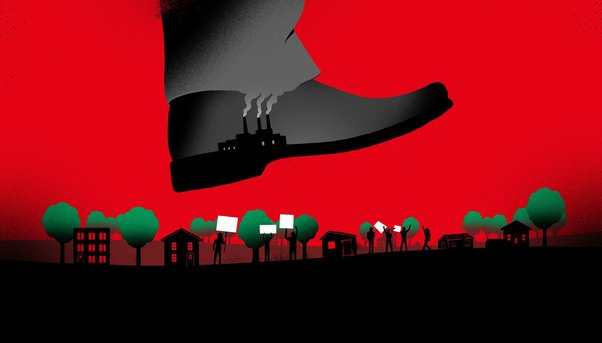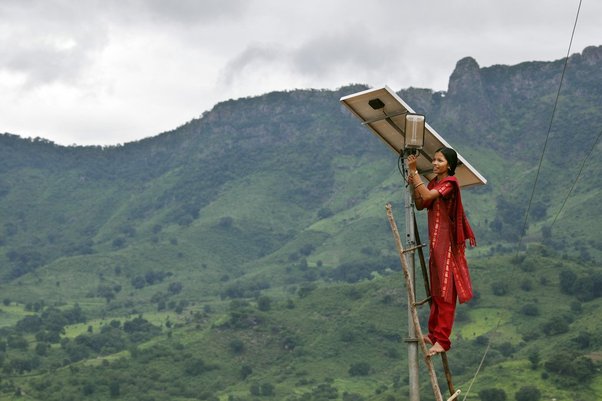Now it's film awards season again with the Oscars and BAFTAs taking place this month, we decided to put together a list of short films about the climate
Whether you want to explore the stories of land and environmental defenders and activists, or learn more about natural (fossil) gas, climate justice, corporate social responsibility and climate solutions, here's a round-up of films to watch if you're short on time.
My mother’s struggle lives on
One the most inspiring people we have collaborated with on a film - Malungelo Xhakaza tells of the damage which she says coal mining has brought to her community in South Africa - and her determination to continue resisting following the murder of her mother, Fikile Ntshangase.
This tragic case exemplifies why companies must be made to put people before profit, but also carries a message of hope as Malungelo explains why she will continue her mother’s fight to protect the community and their land.
Why is natural gas bad for the climate?
First things first. Gas is not ‘natural’, it’s another fossil fuel that the industry has been pushing as a ‘natural’ alternative to other fossil fuels like coal or oil. It’s not low-carbon or renewable, and claims that it can be decarbonised are largely unproven.
Learn more about the truths behind the latest fossil fuel myths that threaten our progress on tackling the climate crisis with this beautiful animation.
How can we hold companies responsible for the damage they cause?
We often focus on the problems surrounding the climate crisis and the bad behaviour of corporations who are fuelling the problems but what about the solutions? What can companies do to actually help the planet?
Companies can have a major impact. We call this ‘corporate accountability’. It sounds like a complicated term, but this compelling animation video helps to break it down and explain what we can do to help shift the power.
New oil and gas production incompatible with Paris climate goals
One of our older videos, but still very much relevant today. It is a stark warning that all new oil and gas production forecast for years to come and it is completely incompatible with keeping the world’s warming to 1.5 degrees. We looked at the numbers – working with the latest climate science and industry forecasts – to visualise just how much damage could be done if oil and gas companies don’t align their plans to meet the Paris agreement climate goals.
Ramón's story: Following in my father's footsteps
Ramón Bedoya Peñata’s story is a clear example of how produce that ends up in the supermarkets of Europe are often linked to human rights and destruction in source countries.
Ramón is a land and environmental defender in Colombia whose father was murdered for protecting his land from big agribusiness.
Watch this film and use it as motivation to demand governments in the UK, EU and beyond to make sure companies clean up their supply chains.
What is climate justice?
Climate justice is a term and concept that has increasingly gained recognition in recent years, thanks to youth climate activists, Indigenous Communities, and Communities of Colour. But what exactly does it mean, and why is it so important?
Learn all about this empowering concept that puts people at its heart, and understand why achieving climate justice is vital to addressing the climate crisis. Presented by Nicki Becker, Climate Justice Activist in Argentina, and Seema Joshi, Global Witness’ Director of Campaigns, based in the UK.
Justice for Gloria Capitan: The struggle against coal continues
Gloria Capitan was a grandmother and environmental activist in Bataan Province, the Philippines, who stood up to the massive, polluting coal power operations encroaching on her Indigenous community.
This is a story of displacement, environmental destruction and the devastating consequences of Gloria’s fight. Please watch and share her story.
How do corporations influence decisions on climate action?
We’ve all experienced – or at least heard about – a toxic friendship. But one of the worst examples of a toxic friendship is the one between polluters and politicians.
Governments continue to pour billions of dollars of taxpayer money into fossil fuel subsidies, allow businesses headquartered within their borders to continue their polluting ways, and argue (against all evidence to the contrary) that fossil fuels will have a role to play in energy production for years to come.
So, what’s going on here? Why aren’t governments doing what their constituents overwhelmingly want them to do? The answer is: influence. This video breaks down in simple terms the effects of corporate influence on climate policy, and what you can do about it.


